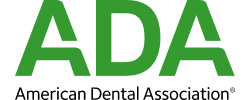Your general dentist in Kendall. Privileged to treat you like family!
Emergency Dental Treatment Overview
- Emergency dental care provides fast pain relief, prevents further damage, and offers comprehensive care for various dental emergencies.
- The benefits of emergency dentistry include fast pain relief, the prevention of further damage to the affected tooth or area, and comprehensive care that addresses both immediate concerns and long-term oral health.
- Common dental emergencies include toothaches, partially dislodged teeth, dental abscesses, and knocked-out teeth.
- Emergency dental procedures performed at Bliss Dental include tooth extractions and root canal therapy.
- Preventing future dental emergencies involves regular dental checkups, maintaining a healthy diet, and practicing good oral hygiene.
- The cost of emergency dental care in Kendall, FL, varies depending on the severity of the dental issue and the specific treatment required.
When you have a dental emergency in Kendall, FL, Dr. Andy Gaertner can provide immediate emergency dental services and effective treatment.
Immediate Benefits of Emergency Dentistry
Emergency dentistry provides immediate benefits for individuals experiencing severe dental pain, injury, or other urgent oral health issues, such as a broken or fractured tooth. By offering quick access to professional care, emergency dental services make sure that patients receive prompt treatment to alleviate their discomfort.


Emergency Dental Treatment: What to Do
Call our office for assistance if you’re unsure whether you have a dental emergency. Our team will be happy to make a recommendation. In the meantime, there are certain steps you can take to protect your teeth and gums, such as placing a knocked-out tooth back in its socket and gently biting down on it.

Most Common Dental Emergencies
At Bliss Dental, we treat various dental emergencies. Some of the most common problems we see include:
Emergency Dental Procedures We Perform
At our dental practice in Kendall, FL, we prioritize providing our patients with pain-free emergency dental care when they need it most, recognizing the difficulties of not having timely access to appropriate treatments.
Preventing Future Dental Emergencies
We firmly believe that implementing appropriate preventive measures can substantially reduce the likelihood of such problems and improve overall dental health. Our recommendations include:
- Patients are advised to have regular exams and cleanings to prevent dental damage and infections. Dr. Gaertner suggests that patients schedule appointments every six months.
- Wearing a mouthguard during sports can prevent dental injuries. Avoiding hard foods and non-edible items can also protect teeth.
- A diet rich in fruits, vegetables, and protein can help prevent dental problems. These foods strengthen teeth and fight decay, while sugary or acidic foods can erode enamel and increase the risk of cavities.
- Regular brushing and flossing remove food particles and plaque, reducing the risk of dental complications.
Best Candidates for Emergency Dental Care in Kendall, FL
Individuals experiencing severe dental pain, injuries, or infections that require immediate attention are the best candidates for emergency dental care in Kendall, FL. Such situations include knocked-out or partially dislodged teeth, dental abscesses, broken or dislocated jaws, and persistent sinus pressure. Dr. Gaertner and the Bliss Dental team are well-equipped to handle these emergencies and provide expert care to alleviate pain and prevent further damage.

Call today to schedule your consultation

The Emergency Treatment Process
When you visit Bliss Dental for emergency dental care, our team will assess your dental issue and determine the appropriate course of action. This may involve taking X-rays or performing a thorough examination to identify the root cause of your emergency. Once the diagnosis is made, Dr. Gaertner will discuss the treatment options with you and proceed with the most suitable procedure.
Recovering After Your Emergency Dental Treatment
Dr. Gaertner will provide aftercare instructions to promote a smooth and comfortable healing process. Some general tips for recovery include:
- Taking prescribed or over-the-counter pain medications as directed to manage discomfort.
- Applying ice packs to the affected area to reduce swelling and inflammation.
- Maintaining a soft food diet until your dental issue has healed.
- Practicing good oral hygiene by gently brushing and flossing around the treated area.
- Avoiding strenuous activities or heavy lifting for a few days following treatment.
- Attending follow-up appointments with Dr. Gaertner to monitor your progress and promote proper healing.

Cost of an Emergency Dentist in Kendall, FL
The cost of emergency dental care in Kendall, FL, can vary depending on the severity of the dental issue and the treatment required. At Bliss Dental, we understand the importance of affordable dental care and accept many insurance plans. We also offer financing options to make our services accessible to all patients. For an estimate of your specific emergency dental needs, we recommend contacting our office for a consultation with Dr. Gaertner.
Pain-Relieving Results of Emergency Procedures
Emergency dental procedures aim to alleviate pain and discomfort caused by dental emergencies as quickly as possible. Dr. Gaertner and his team at Bliss Dental prioritize patient comfort and satisfaction, using state-of-the-art techniques, personalized sedation, and equipment to provide effective, pain-relieving treatment.
Helpful Related Links
- American Dental Association (ADA). Glossary of Dental Terms. 2015
- American Academy of Cosmetic Dentistry® (AACD). Home Page. 2015
- WebMD. WebMD’s Oral Care Guide. 2015
Why Choose Dr. Gaertner for an Emergency Dental Visit in Kendall, FL?
Dr. Andy Gaertner is a highly experienced and skilled dentist with a passion for providing exceptional emergency dental care. When you choose Dr. Gaertner for your emergency dental needs, you can expect:
- A strong commitment to patient safety and satisfaction.
- Personalized emergency treatment plans tailored to your unique needs and goals.
- A comfortable, state-of-the-art facility designed for your convenience and well-being.
- Prompt and effective treatment to alleviate your pain and resolve your dental issues.



